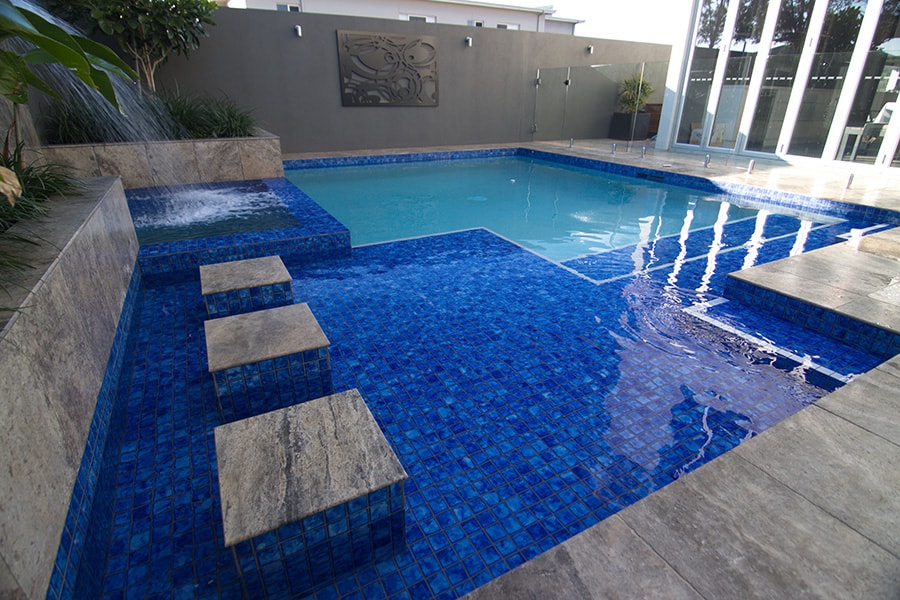When you’re shopping for the newest addition to your backyard, pool tiles can be a costly investment. So which will last longer and give you the best value? By following these five simple steps, it’s easy to choose the best pool tiles for your swimming pool!
The Purpose of the Pool: Is It Public or Private?
There are many factors to consider when choosing the right pool tiles for your needs. The purpose of the pool can determine which type of tile is best suited for you and your specific installation.
Public pools typically use concrete or fiberglass liner pools, while private pools may use more luxurious materials like natural stone or ceramic tiles. Liner pools must be properly sized and constructed in order to prevent leakage, so it’s important to choose the right tile for your application.
Some factors to consider when choosing pool tiles include:
-The material the tile is made from: Concrete and fiberglass liners are typically made from these constituents, while natural stones and ceramic tiles are much more expensive but often last longer.
-How easy is it to clean: Every type of tile has its own cleaning requirements, so it’s important to choose something that will be easy to keep clean.
-The durability of the tile: Some materials are much more durable than others, so it’s important to choose something that will hold up over time.
-The look of the tile: Some tiles are designed specifically for public pools while others may be more aesthetically pleasing for a private pool setting.
Where Do You Place Your Pool?
If you’re thinking about installing a pool, you might be wondering where to place the tiles. There are a lot of different options out there, and it can be confusing to decide which one is right for you. Here are five tips to help you choose the best pool tiles for your needs:
1. Size Matters
The first thing to consider is size. If you have a small space, then smaller tiles might be the best option. On the other hand, if your pool space is really limited, large tiles might not fit well. It’s important to get an accurate estimate of how much space you have before making any decisions.
2. Material Matters
Pool tiles come in many different materials, and each has its own benefits and drawbacks. PVC tiles are affordable and easy to install, but they tend to wear down quickly and may not be very durable. Clay tiles are more expensive but last longer and are resistant to weathering and bacteria growth. Compost tile is made from recycled materials, so it’s environmentally friendly as well as durable!
3. Pattern Matters
One of the most important factors when choosing pool tiles is the pattern. Some patterns look great in real life while others look better in photos but end up being unattractive in person. It’s worth spending a little extra money on high-quality tiles that will look good for years to come.
How Often Does Your Pool Get Used?
If you are looking to improve your pool’s performance or just want to change up the look of your swimming area, there are a variety of tiles that can be used. Furthermore, the type of tile you choose can also depend on how often your pool is used.
When it comes to choosing tile for a pool, there are a few things to consider. The first is the style of your pool – will it be an In-ground Pool or an Above-Ground Pool? Next, you need to decide on the material your tiles will be made from – PVC, Vinyl or Concrete? And finally, you need to think about how often your pool will get used. If you have an In-ground Pool and use it less than once a week, then you can go with Vinyl Tiles. If you have an Above-Ground Pool and use it more than once a week, then go with PVC Tiles. If both pools are in use daily, then Concrete Tiles would be the best option.
There are also different types of tiles that can be used in pools:
• Diamond Tiles – These are designed for Circular Pools and give the appearance of natural swimming pool water. They come in many different shapes and sizes and range from around $20-$30 per square foot installed.
• Curved Glass Tiles – These tiles mimic the curves of real glass and come in many colors including aqua-blue tiles.
What Do You Want To Focus On When Purchasing Tiles for Your Swimming Pool?
When you are thinking about purchasing tiles for your swimming pool, there are a few things you should consider. The size of the pool, the type of tile, and the style of your pool all factor into what tiles will work best for you.
Size of Pool: The size of your swimming pool is one factor that impacts the type of tile you should purchase. If your pool is small, then you might want to choose smaller tiles that will not require a lot of maintenance. On the other hand, if your pool is large, then you might want to select larger tiles that will require less upkeep.
Type of Tile: There are three types of tile used in swimming pools – grout, slate, and mosaic. Grout is the most common type and is made up of small stones that are bonded together with cement. Slate is similar to grout but has a slightly different texture. A Mosaic is made up of tiny colorful stones and looks very decorative.
Style of Pool: If you have a traditional-style pool with a liner and concrete decking, then you will need slate or mosaic tiles. If you have an in ground or aboveground pool with a plastic liner or fiberglass decking, then grout or quarry tile can be used.
Budget for Tiles and Accessories
There are many factors to consider when choosing the best pool tiles for your swimming pool. Here are five tips to help you make a wise choice.
- Size and shape of the swimming pool: The first thing you need to do is determine the size and shape of your swimming pool. This will help you decide what type of tiles will fit best. If you have a rectangular pool, for example, ceramic tiles are a good option because they’re uniform in size and shape.
- If your swimming pool is irregular in shape, like an L-shape, then vinyl or slate tiles might be a better choice because they can be shaped to match the curve of the pool.
2. Type of water: You also need to consider the type of water in your swimming pool. Pool tiles that are designed for chlorine-laden water will not work well in pools with salt water. If you have an alkaline or neutral water system, though, any tile will work fine.
3. Weather conditions: Pool tiles can last anywhere from six months to two years depending on how often they’re used and how weather conditions affect them. Be sure to check the warranties that come with each product before making a purchase.

